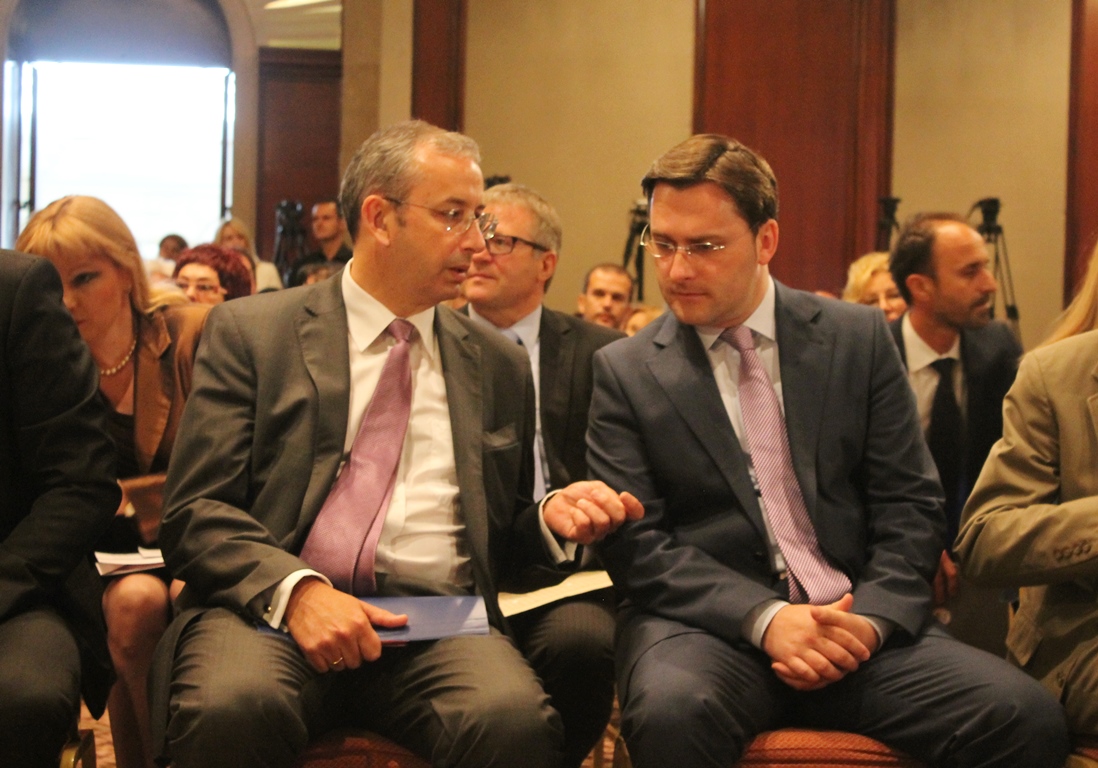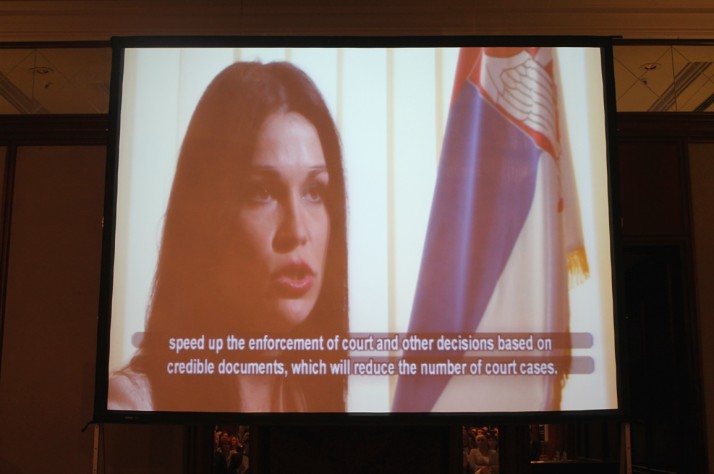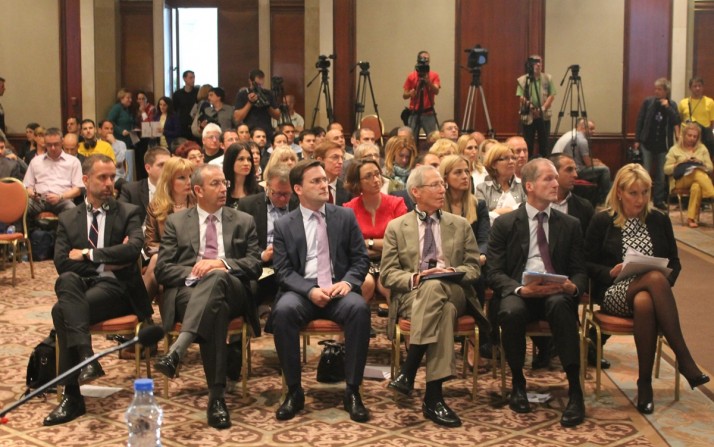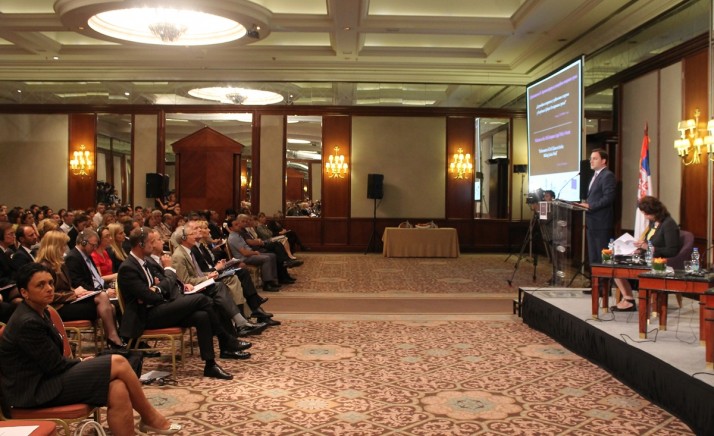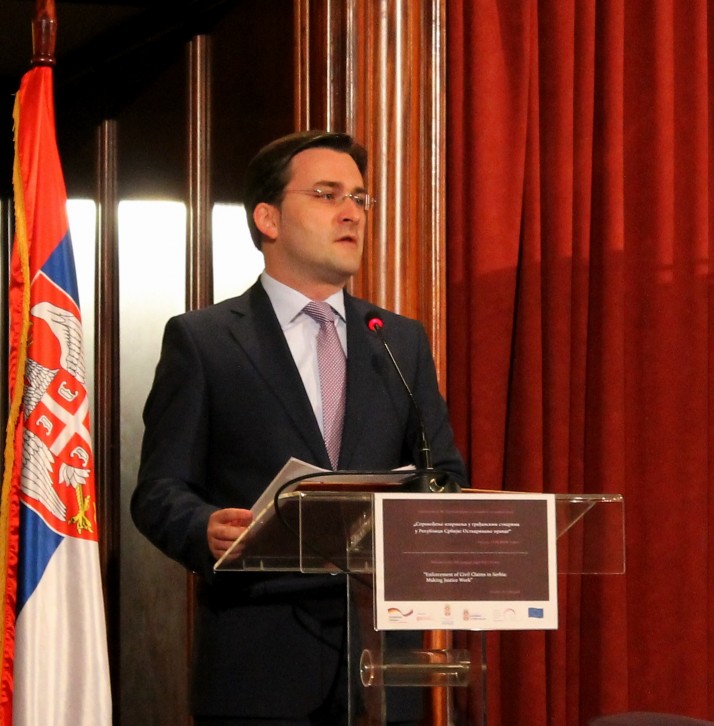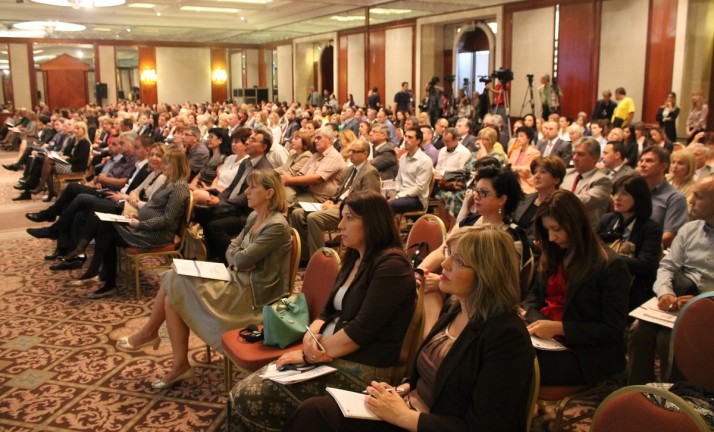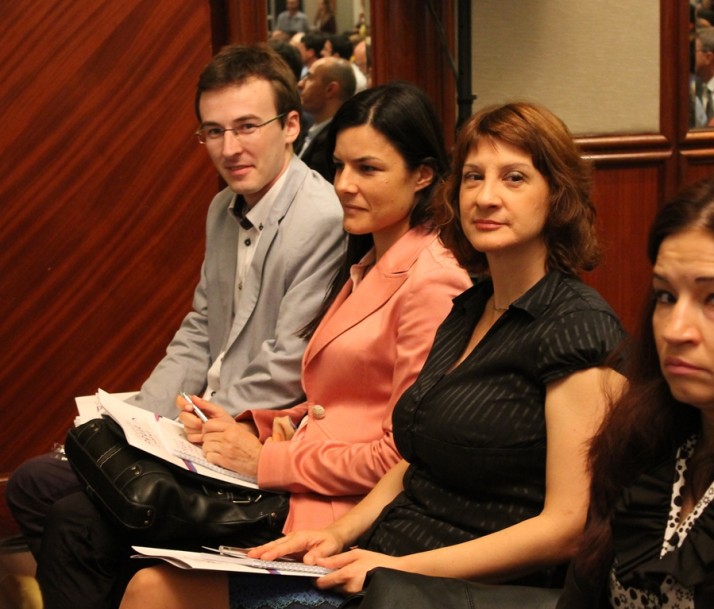The implementation of the current Law on Enforcement and Security has revealed numerous shortcomings relating to the accountability of enforcement agents concerning the specification of minor and severe disciplinary violations, the keeping of disorderly records, and inconsistent practice in the adoption of acts. Aware of the possible consequences of these shortcomings, the Ministry of Justice set up a Working Group for drafting the amendments to this Law, tasked with improving the general provisions of the Law relating to the enforcement procedure and making them logical and clear, thus establishing a more efficient enforcement system and making the position of enforcement agents more transparent, Minister of Justice Nikola Selaković said today at the Tenth European Legal Policy Forum, held at the Hyatt Regency Hotel.
Selaković pointed out that 199 enforcement agents who had been delegated broad powers were currently working in Serbia and that this number would soon be 218, accounting for 70 percent of total number envisaged by the rulebook. “Their broad powers are reflected in the competence for conducting enforcement procedures relating to debts towards utility companies, whereby they not only conduct these proceedings but also allow enforcement, which is in other enforcement matters within the jurisdiction of courts,” Selaković added.
Selaković pointed out that the long-standing inefficiency in the enforcement of judicial decisions, as well as a large backlog of unresolved enforcement cases, had contributed to the introduction of the profession of enforcement agent, which, together with the public notary profession, is essential for strengthening legal security, judicial efficiency, and improving the investment climate in Serbia.
“Establishment of rule of law and legal security are the primary goals prescribed by the National Judicial Reform Strategy, and had there been more common sense in Serbia ten years ago, Serbia would not have destroyed an institution that provides an efficient enforcement system without the introduction of private enforcement agents,” Selaković said, adding that he was referring to the former payment operations service, which still operates in a similar form in neighbouring countries, such as Croatia.
Selaković emphasised that additional trainings would be organised for enforcement agents in order to properly train them for their work, and that the ministry, aware of the need to have professional staff for supervising the enforcement agents, would work on strengthening the human resources within the ministry itself.
The participants were also addressed by the Head of the European Union Delegation to the Republic of Serbia, HE Michael Davenport, the US Ambassador to the Republic of Serbia HE Michael Kirby, and Deputy Ambassador of the Federal Republic of Germany to the Republic of Serbia Michael Hasenau.
The Forum was organised by the Ministry of Justice, in cooperation with the Chamber of Enforcement Agents of the Republic of Serbia and the German Organisation for International Cooperation – GIZ Legal and Judicial Reform Programme in Serbia.

